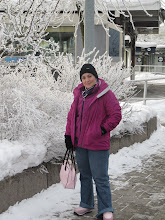The simplest things can also be the most humbling. In my very first clinical rotation in 4th year, surgery rotation no less, it quickly became obvious how things worked. On the first day, we were heartily chucked into the deep-end and the registrars watched with relish ... who would sink - and who would swim. I swear they took so much joy in watching us suffer. It helped form my subsequent opinion of most surgeons ...
One of my patients was day 1 postop. A young man with stomach outlet obstruction. The prof had operated on him personally. This was mentioned a few times, so I guessed it had to mean something. Sort of like ... no stuff-ups allowed on this patient. Not that stuff-ups were tolerated at all, but we were only human.
It was around midday and we were having lunch in the cafeteria. Yes ... even surgeons must eat. A huge amount of work had been dumped on our clueless heads and we were trying to figure it all out. Suddenly my beeper went off. Nothing serious, but hell of a scary seeing as it was the first time. My patient's drip had tissued, it was my job to issue him with a new one. Ok, I said looking around at my mates. Which of you know how to put up drips? Four very blank faces looked back at me.
Fantastic! First day, prof's pet patient, and already the shit was heading towards the fan.
As I made my way back to the ward, I thought ... how difficult could it be? Find vein, put cannula in , attach fluid. Simple.
Alternatively, find someone who knows how to do it, watch and learn. Simple.
Back in the ward, there was no possible help in sight. Senior students had vanished into thin air, and as for the registrars, God only knew where they were. Not sure I'd have asked them for help anyway.
I refused to get phased about a drip, and secretly I was relieved to be alone. Witnesses were the last thing I needed during Operation Figure It Out. It took me a while to collect everything I thought I'd need. Then I grabbed a chair and sat down next to the patient. He was either heavily drugged, or in a very deep sleep. He just lay there, sweating profusely, totally oblivious to everything around him. At that point it didn't matter why he was not responding to the environment. It was a blessing in disguise cause I was gonna hurt him, a lot , and he was not going to feel it. What a bargain.
Gently I applied the tourniquet and looked for a vein. Honestly, it was my very very first attempt at an IV cannula and I was going to do it blindly. I felt bad about that. How could I touch a patient and not know what I was doing? ( Subsequently I got very well acquainted with that particular emotion). Can't tell you how grateful I was for his semi-comatous state. An experienced person would've put up hundreds of drips in the time I sat there holding the bloke's left arm. In retrospect, I may have been waiting for divine intervention or something.
Finally, I just had to take the plunge. I poked and poked and poked, praying that he wouldn't wake up. Sweating more than he was, I hardened my heart and blocked out everything around me. It helped that he was so out of it. A vein would be found even if it killed me. And even if it took me all afternoon.
As with all procedures, there is of course, a certain way to go about it, ensuring a good success rate. Well ... that left arm resembled an old pin cushion by the time I finally had it figured out.
I was exhausted. My neck and shoulders were stiff and sore. My hands were cold and clammy and there was blood on my shoes.
But the blessed Ringers was pouring into the blessed vein.
Simple was simply not always simple. In those agonizing moments I learnt to have a healthy respect for my job. Even today when drips are our bread and butter and we put them up in mere seconds, you get the odd patient where simple is simply not simple...... You sometimes struggle, and quite simply, it keeps you humble.
Saturday, August 27, 2011
Subscribe to:
Comments (Atom)
